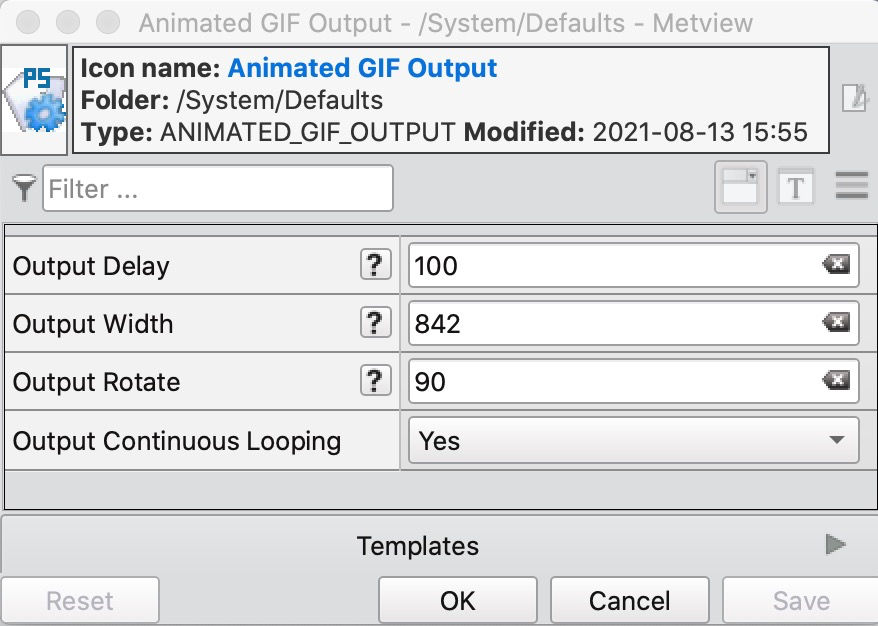Metview can generate animated GIF files from the interactive plot window. Just click on the Export icon or the File → Export menu and choose Animated_GIF as the output format. Make sure that the Frame Selection is what you want (usually All). The spanner icon presents more options for the output. Note that this feature requires that the ImageMagick command 'convert' be available on your system. 


It is also possible to convert Metview's PostScript output using the ImageMagick convert command. This is useful when running from a Macro or Python script. Below are some examples of doing this, along with an example showing how to incorporate this into a Metview macro. Please note, if you only try to achieve an animation with a relative small number of images within PowerPoint you might want to consider the options provided by PowerPoint. The Insert > Photo Album might be one of them. Converting a multi-page PostScript to an animated GIFconvert -delay 200 -rotate "90<" input.ps output.gif Tip: Alter the speed of animationTo change the animation speed use convert -delay 100 input.gif output.gif Tip: High-quality larger imagesSimply setting the -geometry flag to obtain a larger output file does not ensure high quality; instead use something like convert -density 150 input.gif output.gif Tip: Continuous loopingSome viewers, especially some versions of MS PowerPoint, only play a single animation cycle. To make it continuous you can use the option -loop with convert: convert -loop 999 input.gif output.gif NOTE: In Microsoft PowerPoint in most cases it should work to import the GIF as an 'Image'. If the GIF is imported as a 'Video file', PowerPoint requires extra settings for continuous looping of GIFs. Go to the "video tools" menu, which contains "format" and "playback". Under the playback menu, there is a button "Loop until stopped". Click on it, to allow continuous loops! Tip: Transparent backgroundYou can also use convert to replace any white in the image with a transparent background: convert -fuzz 10% -transparent white input.gif output.gif |